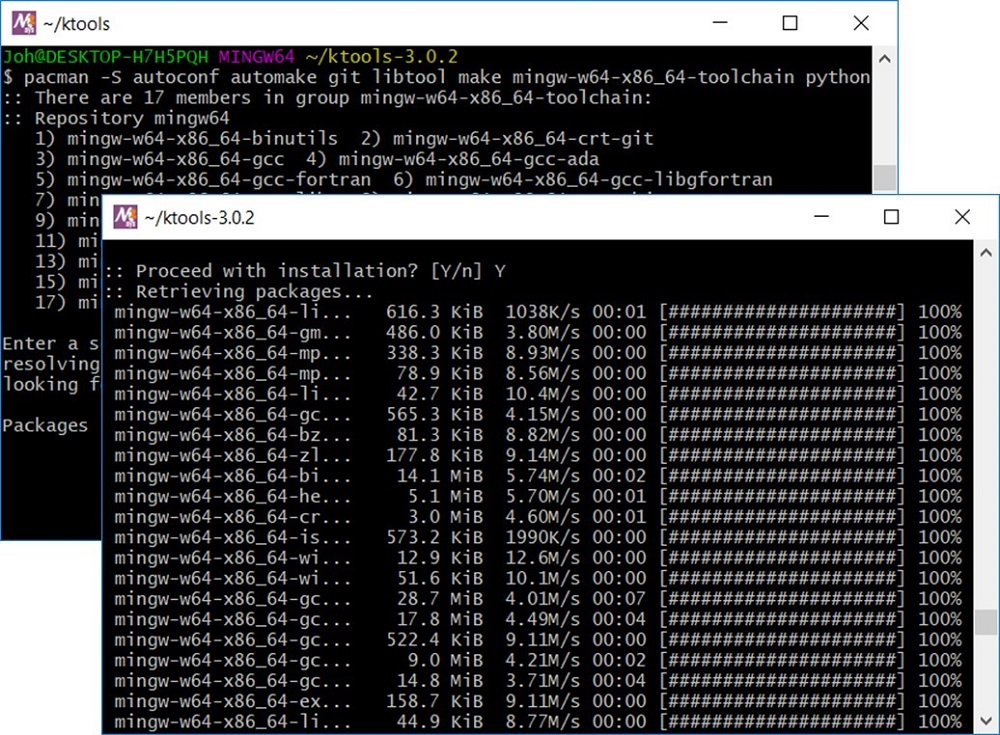This is the POSIX-compliant Oasis LMF In-Memory Kernel toolkit.
Please click here to download the latest release.
The source code will change on a regular basis but only the releases are supported. Support enquiries should be sent to [email protected].
There are build instructions for Windows 64-bit executables.
Note that the dynamic random number option in the Windows build uses a deterministic seed due to a bug in the mingw compiler. We recommend the random number file option (gulcalc -r) should be used in Windows.
This issue will be handled in future releases by implementing the rdrand random number generator in all environments.
The g++ compiler build-essential, libtool, zlib1g-dev autoconf on debian distros or 'Development Tools' and zlib-devel on red hat needs to be installed in Linux.
Copy ktools-[version].tar.gz onto your machine and untar.
$ tar -xvf ktools-[version].tar.gzGo into the ktools folder and autogen using the following command;
$ cd ktools-[version]
$ ./autogen.shConfigure using the following command;
$ ./configureOn OS X add an extra flag:
$ ./configure --enable-osxMake using the following command;
$ makeNext run the automated test to check the build and numerical results;
$ make checkFinally, install the executables using the following command;
$ [sudo] make installThe installation is complete. The executables are located in /usr/local/bin.
If installing the latest code from the git repository, clone the ktools repository onto your machine.
Go into the ktools folder and autogen using the following command;
$ cd ktools
$ ./autogen.shFollow the rest of the process as described above.
Install Cmake from either system packages or cmake.org
$ cmake .$ make all testMSYS2 64-bit is required for the Windows native build. MSYS2 is a Unix/Linux like development environment for building and distributing windows applications. https://www.msys2.org/
Download and run the set-up program for MSYS2 64-bit.
Open a MSYS2 terminal and perform the updates before continuing.
The following add-in packages are required;
- autoconf
- automake
- git
- libtool
- make
- mingw-w64-x86_64-toolchain
- python
These packages can be installed at the MSYS2 terminal command line.
$ pacman -S autoconf automake git libtool make mingw-w64-x86_64-toolchain pythonClone the github repository at the MSYS2 terminal command line
$ git clone https://github.com/OasisLMF/ktools.gitGo into the ktools folder and run autogen using the following command;
$ cd ktools
$ ./autogen.shConfigure using the following command;
$ ./configureMake using the following command;
$ makeNext run the automated test to check the build and numerical results;
$ make checkFinally, install the executables using the following command;
$ make installThe installation is complete. The executables are located in /usr/local/bin.
There is sample data and six example scripts which demonstrate how to invoke ktools in the /examples folder. These are written in python v2.
For example, to run the eltcalc_example script, go into the examples folder and run the following command (you must have python installed):
$ cd examples
$ python eltcalc_example.py To build linux docker image do following command
docker build --file Dockerfile.ktools.alpine -t alpine-ktools .
Email [email protected]
The code in this project is licensed under BSD 3-clause license.



